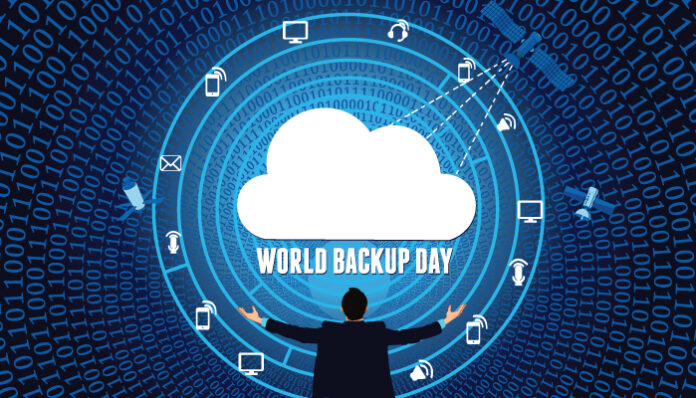Today, data is the cornerstone of tech advancement and business operations. The emergence of Generative AI (GenAI) brings disruptive benefits to data framework and security. However, new data challenges also appear with this innovative new tool.
As we celebrate World Backup Day, it is important to understand the impact of tech advancements on the data ecosystems and the measures needed to ensure data resilience.
AI has changed how firms create, manage, and use data. With its vast capabilities, it boosts innovation and greatly increases the complexity of data infrastructure.
This article explores the complexities involved in improving data resilience amidst these advancements.
Evaluating Your Data Backup System
In the GenAI era, the amount of data that firms handle is growing exponentially, from terabytes (TBs) to petabytes (PBs). This makes managing and protecting this data a very complex and critical task.
As we navigate these complexities, we must have strategies for scaling the data backup systems. This can help handle this massive influx of data efficiently.
Here are the key points discussed in detail:
-
Scaling the Data Backup System:
As data volumes grow, the data backup systems must scale accordingly. This ensures that all data is securely backed up without any risk of data loss.
This involves increasing storage capacity and improving the backup system’s ability to manage and retrieve data efficiently.
Camellia Chan, CEO and co-founder, at Flexxon, says, “While making a copy of all your important files is certainly a good thing, it won’t protect you from cybercriminals. This World Backup Day, I implore organizations to not just ‘backup’, but to take a proactive approach to cybersecurity in order to truly be prepared against data loss and theft. And with 90% of the world’s data created in the last two to three years, there’s an enormous amount of it needing to be protected.
Traditionally, many businesses have used only software-based cybersecurity solutions, but these have significant shortcomings and vulnerabilities. They rely too much on human intervention like actioning updates and fail at achieving true Zero Trust protection.
In today’s rapidly changing cyber environment, businesses must invest in hardware-based security and embrace it as an essential layer of protection. When combined with software, hardware security’s ability to detect quickly, respond immediately, and in some cases even allow for near-immediate recovery, the fallout from data loss and theft is greatly minimized.
It’s better to be safe rather than sorry and let go of traditional approaches to security.
Also read: Best Practices to Secure Data Integration
-
Ensuring Compliance and Governance:
As data volume increases, sticking to legal and regulatory requirements becomes more challenging.
Compliance involves ensuring that the data handling practices and processes confirm to prescribed regulations.
Governance refers to the policies and processes that control how data is used and accessed within a firm.
Compliance and governance ensure data is handled ethically, legally, and securely. Enterprises need to follow the process laid down for these.
-
Ensuring Resilience:
Data resilience is the ability to recover data and continue operations in the face of server crashes, cyber-attacks, or natural disasters. This involves having strong backup and disaster recovery plans. Also, it is important to test the backup processes regularly, to ensure they work as per governance and compliance.
Strategies like having off-site backups or using cloud storage can improve resilience. It ensures backups are not exposed to the same risks as the primary data.
-
Protecting Data During AI Inference and Edge Computing:
As AI and edge computing become more generic, protecting data in these environments becomes crucial. Adopting AI tools involves using trained AI models to make decisions or predictions based on new data.
This process usually requires processing sensitive or personal data. It raises privacy and security concerns. Similarly, edge computing involves processing data closer to where it is generated rather than in a centralized data center.
This introduces new challenges in securing the data.
Data protection in these contexts requires implementing strong security measures. This includes encryption and access controls. Also, the data’s privacy implications must be carefully considered.
Redefining Backup Strategies for Improved Cybersecurity
The field of cybersecurity is constantly changing, with new threats emerging regularly. This dynamic environment requires shifting from reactive measures to more proactive ones.
-
Beyond Data Backup:
While backing up data is a basic security practice, it’s no longer considered a complete defense strategy against modern cyber threats. Solely relying on data backups is insufficient for today’s security needs.
-
Proactive Cybersecurity Measures:
Adopting proactive cybersecurity strategies is important. This involves continuously monitoring and analyzing networks for signs of suspicious activity. Implement strong access control measures and regularly update and patch systems.
Conclusion
World Backup Day is a vital reminder about the significance of managing and protecting data in the current high-risk cybersecurity landscape.
As GenAI continues to reshape how we collect, manage, and use data, firms must adapt by scaling their backup systems. At the same time, they need also to ensure they are functioning as per compliance and governance requirements. This improves data resilience and protects data during AI inference and edge computing processes.
It is clear that in the age of GenAI, merely backing up data is not enough. Adopting a proactive approach to cybersecurity, including hardware-based security measures and continuous threat monitoring, is essential.
It is also critical to adopt AI, automation, and ML tools to ensure a resilient data backup strategy.
With these tools, firms can protect themselves against data loss and theft. This ensures their operations remain resilient in the face of challenges.
World Backup Day is a reminder for firms to reassess and strengthen their data protection strategies, adopting the complexities and opportunities of tech advancements
Check Out The New ITsecuritywire Podcast. For more such updates follow us on Google News ITsecuritywire News.









